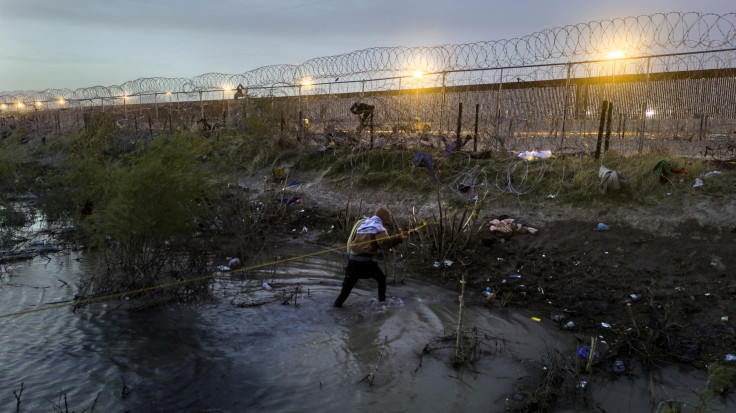
It is no secret that for unauthorized migrants, crossing the U.S.-Mexico border is an arduous journey. From extreme heat in certain states like Arizona, to lack of safe pathways and potential exposure to criminal groups, migrants face dire conditions on their way into the U.S. But while the threats of this travel option are often highlighted by politicians and advocate groups alike, one big question remains unanswered: how many people die on their way north?
The exact number of migrant deaths across the southern border remains a great source of worry for activists, as the number reported by different agencies and stakeholders remains inconsistent.
For instance, according to the Medical Examiner in Pima County, Arizona, 3,634 migrant deaths between the years 2000 and 2022 were registered. Border Patrol, however, only registered 3,069 migrant deaths during that same period, showing a 17% discrepancy between the two groups, Noticias Telemundo reports.
"Border Patrol's undercounts tend to underestimate the number of migrant deaths that occur along the U.S.-Mexico border compared to the record of forensic authorities in the corresponding regions," Daniel Martinez, a sociology professor and co-director of the Binational Migration Institute at The University of Arizona told Noticias Telemundo.
Martinez was part of a special issue in the Journal on Migration and Human Security, where he took a look at some of the factors that have led to these dire conditions at the border.
"Throughout the U.S.-Mexico border, forced migration combined with efforts to block access to legal migration pathways— whether through asylum, work visas, or family reunification— has had devastating consequences, including an increase in migrant mortality," he said.
The International Organization for Migration, a United Nations related organization, has cataloged the U.S.-Mexico border as the deadliest route in the world. By August 2024, at least 5,405 people had died or disappeared throughout the border since 2014, they say.
A June investigation by Noticias Telemundo which consulted the records of 23 border counties in California, Arizona, New Mexico, Texas and two in the south of Florida, reached the conclusion that more than 1,500 undocumented migrants lied in morgues, laboratories and cemeteries, waiting to be identified and claimed by their family members. In Arizona particularly, there were at least 1,388 dead migrants with no identification in the counties of Pima, Cochise and Santa Cruz.
Discrepancies in the number of reports is nothing new. In fact, Martinez said he and his team have noticed that different reports started to rise in 2013, and have not stopped ever since.
"Since 1998, the estimates from the Pima County Medical Examiner's Office in a given year were highly correlated with those of Border Patrol, but that began to change in 2013," says Martinez. "I think there was more open collaboration before, and Border Patrol and the Medical Examiner's Office exchanged more information."
While no clear answer remains as to how to better report these figures, Border Patrol sources told Noticias Telemundo that the reason for the discrepancies may be credited to a change in the agency's responsibilities.
Under the Border Security Initiative, which ended in 2012 due to a Congressional mandate, Border Patrol was responsible for attempting to locate as many deaths as possible in border counties. However, when the initiative ended, the agency began tracking only the deaths and discoveries of remains encountered during its routine patrol and enforcement tasks, along with collaboration with non-governmental organizations, local residents, and local law enforcement agencies.
"If we were not involved in recovering the body, we don't count it because we are not connected to that finding," explained the agency's spokesperson.
© 2024 Latin Times. All rights reserved. Do not reproduce without permission.








